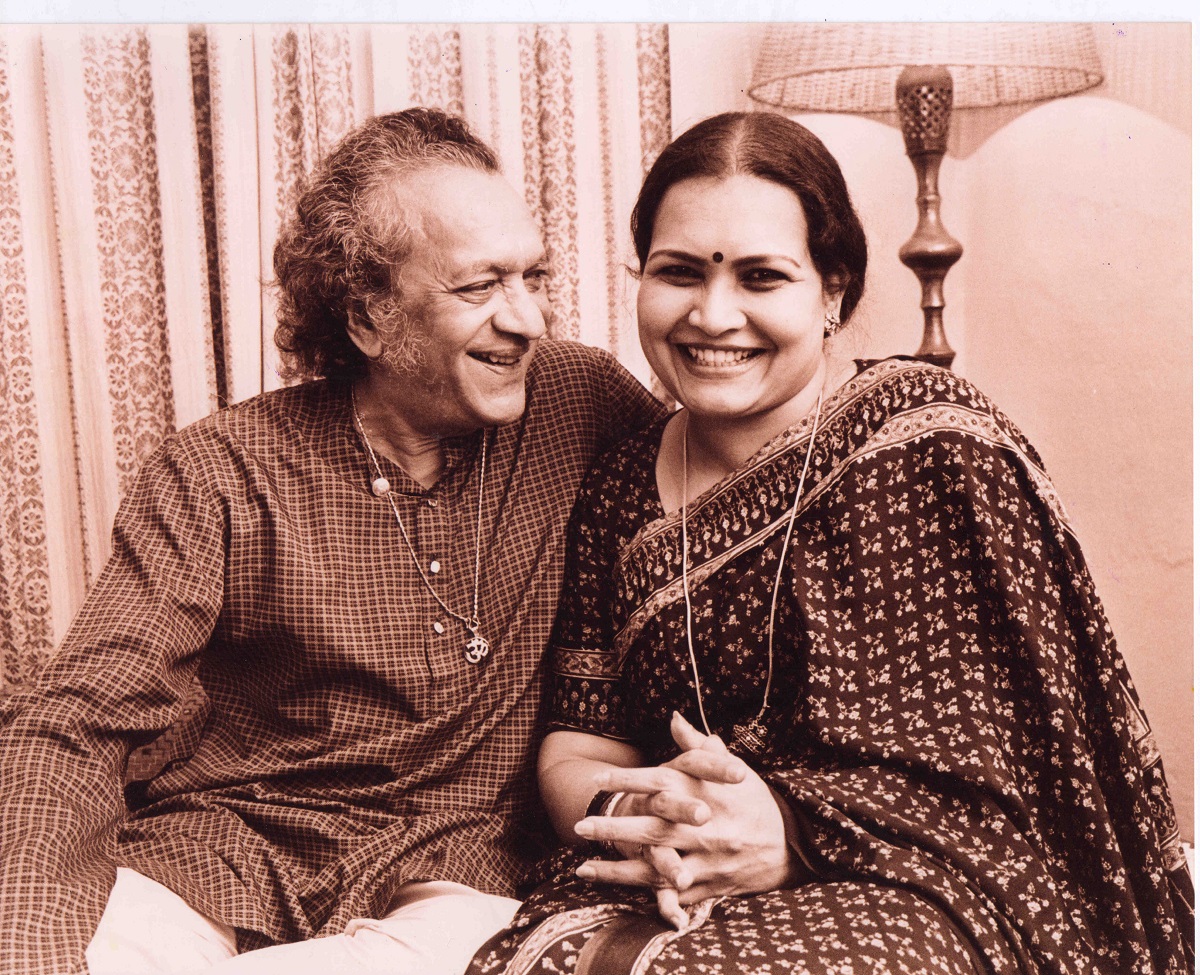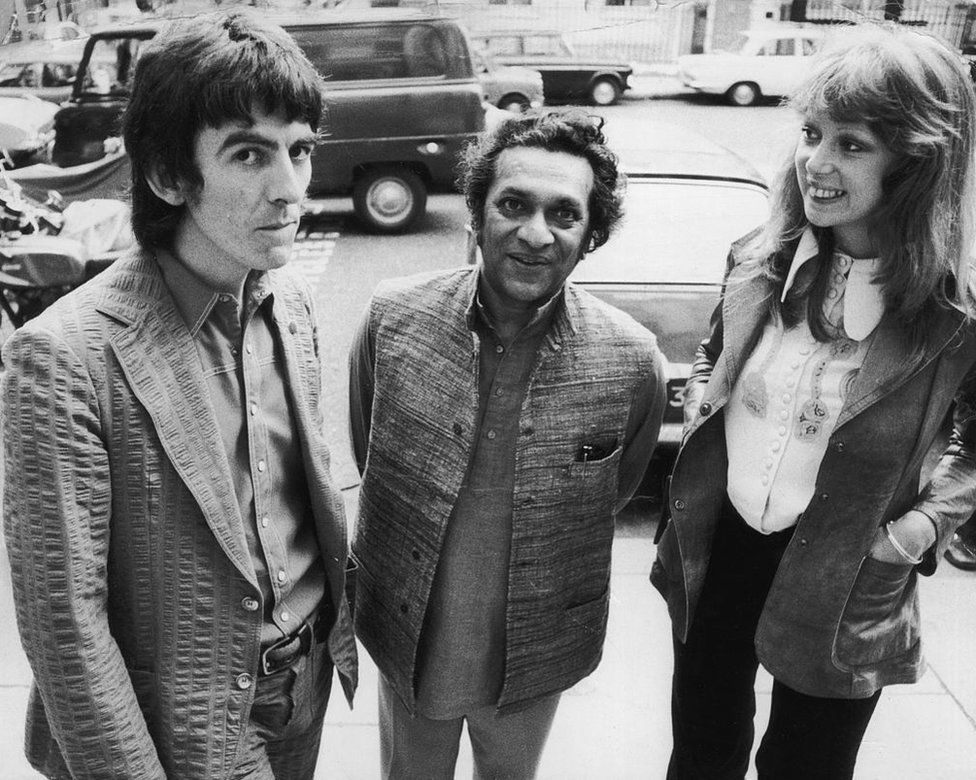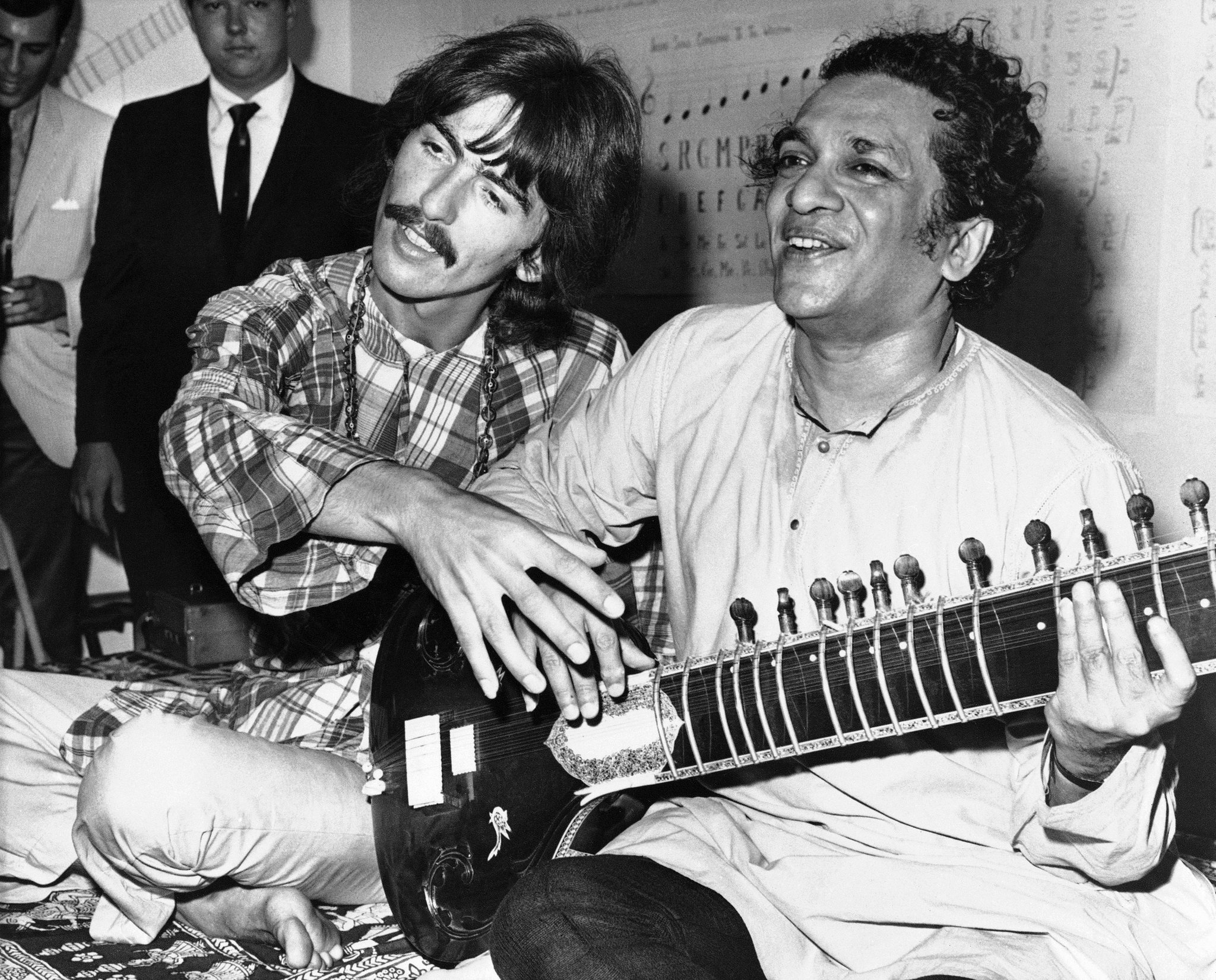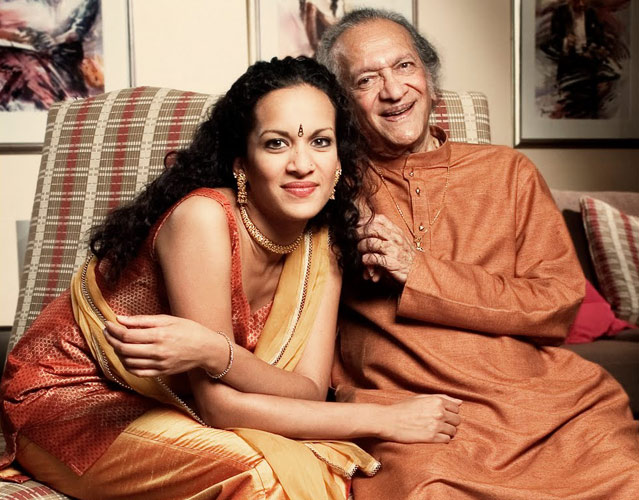Ravi Shankar Sue Jones: A Case of Copyright Infringement
Ravi Shankar was an Indian sitar player and composer. Sue Jones was a British music publisher. In 1997, Jones published a book of Shankar's compositions without his permission. Shankar sued Jones for copyright infringement. The case was settled out of court.
The Ravi Shankar Sue Jones case is an important example of the legal protection of copyright. Copyright law gives creators the exclusive right to reproduce, distribute, and adapt their works. This case helped to establish the principle that copyright law applies to musical compositions.
The Ravi Shankar Sue Jones case also highlights the importance of obtaining permission before using someone else's work. Copyright infringement can have serious consequences, including financial penalties and legal action.
Ravi Shankar Sue Jones
The Ravi Shankar Sue Jones case is a landmark case in copyright law. Here are 9 key aspects of the case:
- Copyright infringement: Jones published Shankar's compositions without his permission.
- Legal protection: Copyright law protects creators' exclusive rights to their works.
- Settlement: The case was settled out of court.
- Importance: The case helped establish the principle that copyright law applies to musical compositions.
- Permission: It is important to obtain permission before using someone else's work.
- Consequences: Copyright infringement can have serious consequences.
- Music: The case involved musical compositions.
- Publishing: Jones was a music publisher.
- Legal action: Shankar sued Jones for copyright infringement.
The Ravi Shankar Sue Jones case is a reminder of the importance of copyright law. Copyright law protects the rights of creators and ensures that they are compensated for their work. The case also highlights the importance of obtaining permission before using someone else's work.
| Name | Birthdate | Birthplace | Deathdate | Occupation |
|---|---|---|---|---|
| Ravi Shankar | April 7, 1920 | Varanasi, India | December 11, 2012 | Sitar player and composer |
Copyright infringement
Copyright infringement occurs when a party uses the copyrighted work of another party without permission. In the case of "Ravi Shankar Sue Jones", Jones published Shankar's compositions without his permission, which constituted copyright infringement.
- Unauthorized use: Jones did not have permission from Shankar to publish his compositions, which is a clear violation of copyright law.
- Protected works: Musical compositions are protected by copyright law, meaning that creators have the exclusive right to reproduce, distribute, and adapt their works.
- Legal consequences: Copyright infringement can have serious legal consequences, including financial penalties and legal action.
- Importance of permission: It is important to obtain permission before using someone else's work, regardless of the medium or format.
The "Copyright infringement: Jones published Shankar's compositions without his permission" facet highlights the importance of respecting copyright law and obtaining permission before using someone else's work. This case serves as a reminder that copyright infringement can have serious consequences.
Legal protection
Copyright law is a crucial component of the "Ravi Shankar Sue Jones" case, as it establishes the legal framework for protecting the exclusive rights of creators over their works. In this case, Ravi Shankar's musical compositions were protected under copyright law, giving him the exclusive right to reproduce, distribute, and adapt his works.
Sue Jones's unauthorized publication of Shankar's compositions without his permission violated his exclusive rights under copyright law. This infringement triggered the legal action taken by Shankar against Jones, highlighting the importance of legal protection for creators' works.
The "Legal protection: Copyright law protects creators' exclusive rights to their works" aspect of the "Ravi Shankar Sue Jones" case underscores the significance of copyright law in safeguarding the rights of creators, ensuring that they are fairly compensated for their creative endeavors and preventing unauthorized use of their works.
Settlement
The settlement of the "Ravi Shankar Sue Jones" case out of court is a significant aspect that warrants exploration. Several factors contribute to the importance of this settlement:
- Dispute resolution: Settlements provide a means to resolve disputes outside of the formal court system, offering a more efficient and potentially less adversarial approach.
- Confidentiality: Settlements often include confidentiality clauses, which can be beneficial for both parties, allowing them to maintain privacy and avoid public scrutiny.
- Flexibility: Settlements allow for customized solutions that may not be available through a court ruling, enabling parties to tailor the outcome to their specific needs and circumstances.
In the case of "Ravi Shankar Sue Jones," the settlement likely involved negotiations and discussions between the parties to reach a mutually acceptable resolution. This could have included agreements on compensation, publication rights, or other terms that addressed the copyright infringement and protected Shankar's rights as the creator of the musical compositions.
Settlements play a vital role in the legal system, offering an alternative dispute resolution mechanism that can be both effective and efficient. They provide parties with a degree of control over the outcome and can contribute to preserving relationships or reputations.
Importance
The legal battle between Ravi Shankar and Sue Jones played a pivotal role in solidifying the application of copyright law to musical compositions. This landmark case set a precedent that has far-reaching implications for musicians, composers, and the music industry as a whole.
- Recognition of musical works as intellectual property: Prior to this case, there was some ambiguity regarding the extent to which copyright law protected musical compositions. The "Ravi Shankar Sue Jones" case unequivocally established that musical compositions are indeed intellectual property, deserving the same legal protections as other creative works.
- Protection of creators' rights: The ruling in this case strengthened the rights of musicians and composers to control the use and distribution of their works. It prevented unauthorized reproduction, distribution, and adaptation of musical compositions without the consent of the copyright holder.
- Impact on the music industry: The establishment of clear copyright protections for musical compositions fostered a more structured and equitable music industry. It encouraged investment in music creation and ensured that musicians received fair compensation for their work.
The "Importance: The case helped establish the principle that copyright law applies to musical compositions" facet highlights the significance of the "Ravi Shankar Sue Jones" case in shaping the legal landscape for music and intellectual property. It underscores the importance of copyright law in protecting the rights of creators and ensuring the integrity of the music industry.
Permission
The "Ravi Shankar Sue Jones" case serves as a prime example of the significance of obtaining permission before using someone else's work. In this case, Sue Jones published Ravi Shankar's musical compositions without his permission, resulting in a copyright infringement lawsuit.
- Copyright Law and Permission: Copyright law grants creators exclusive rights to their works, including the right to reproduce, distribute, and adapt those works. Using someone else's work without permission violates their copyright and can lead to legal consequences.
- Respecting Intellectual Property: Obtaining permission demonstrates respect for the intellectual property rights of others. It acknowledges that creators deserve to control the use of their work and benefit from its exploitation.
- Avoiding Legal Disputes: Seeking permission helps avoid costly and time-consuming legal disputes. By obtaining permission upfront, parties can establish clear terms of use and minimize the risk of infringement claims.
- Building Relationships: Requesting permission can foster positive relationships between creators and users. It shows that the user values the creator's work and is committed to ethical practices.
The "Permission: It is important to obtain permission before using someone else's work." facet underscores the legal, ethical, and practical importance of respecting copyright and obtaining permission when using someone else's work. This principle is essential for maintaining a fair and balanced creative ecosystem and protecting the rights of creators.
Consequences
In the case of "Ravi Shankar Sue Jones," the copyright infringement committed by Sue Jones had significant consequences, highlighting the seriousness of such actions.
- Financial Penalties: Copyright infringement can result in substantial financial penalties, including damages and legal fees. In the case of "Ravi Shankar Sue Jones," Shankar was likely entitled to compensation for the unauthorized use of his compositions.
- Legal Action: Copyright infringement can lead to legal action, including injunctions to prevent further infringement and criminal prosecution in severe cases. Shankar's lawsuit against Jones serves as an example of the legal consequences that can arise from copyright infringement.
- Damaged Reputation: Copyright infringement can damage the reputation of both the infringer and the copyright holder. Unauthorized use of copyrighted works can undermine the trust and credibility of those involved.
- Diminished Creativity: Copyright infringement can discourage creativity and innovation. If creators fear that their works will be infringed upon, they may be less likely to create and share their work, leading to a diminished cultural landscape.
The "Consequences: Copyright infringement can have serious consequences." facet underscores the importance of respecting copyright laws and obtaining permission before using someone else's work. Copyright infringement can have severe financial, legal, reputational, and creative consequences, as exemplified in the case of "Ravi Shankar Sue Jones."
Music
The "Ravi Shankar Sue Jones" case revolved around the unauthorized publication of musical compositions, highlighting the significance of music in the context of copyright law and intellectual property rights.
- Musical Compositions as Intellectual Property:
Musical compositions are original creations that are protected under copyright law. They include melodies, lyrics, harmonies, and musical arrangements. In the "Ravi Shankar Sue Jones" case, Shankar's musical compositions were recognized as intellectual property, deserving the same legal protections as other creative works.
- Copyright Infringement in Music:
Copyright infringement occurs when someone uses a copyrighted work without permission from the copyright holder. In the "Ravi Shankar Sue Jones" case, Jones infringed upon Shankar's copyright by publishing his musical compositions without his consent.
- Protecting Musical Creators:
Copyright law plays a crucial role in protecting the rights of musical creators. By establishing clear ownership and exclusive rights over musical compositions, copyright law safeguards the livelihoods of musicians and composers and encourages creativity and innovation in the music industry.
- Fair Use and Music:
The concept of fair use allows limited use of copyrighted works without permission for purposes such as criticism, commentary, and education. In the context of music, fair use may apply in certain situations, but it is important to consider the specific circumstances and ensure that the use is transformative and does not harm the copyright holder's market.
The "Music: The Case Involved Musical Compositions" facet sheds light on the importance of music in the "Ravi Shankar Sue Jones" case and highlights the legal and practical considerations surrounding musical compositions and copyright law.
Publishing
The involvement of Sue Jones as a music publisher in the "Ravi Shankar Sue Jones" case highlights the importance of understanding the role of music publishers and their responsibilities in the music industry.
- Copyright Responsibilities:
Music publishers play a crucial role in ensuring that copyright laws are upheld. They are responsible for obtaining the necessary permissions and licenses for the use of musical compositions, including securing the rights from copyright holders like Ravi Shankar in this case.
- Publication and Distribution:
Music publishers are responsible for publishing and distributing musical compositions. They work closely with musicians and composers to ensure that their works are made available to the public through various channels, including sheet music, recordings, and online platforms.
- Protecting Creators' Rights:
Music publishers have a duty to protect the rights of the creators they represent. They ensure that copyright holders receive fair compensation for the use of their works and advocate for their interests in the music industry.
Understanding the role of music publishers in the "Ravi Shankar Sue Jones" case sheds light on the complex legal and practical considerations surrounding music copyright and the importance of respecting the rights of creators.
Legal action
The legal action taken by Ravi Shankar against Sue Jones for copyright infringement is a significant aspect of the "ravi shankar sue jones" case, as it demonstrates the legal recourse available to creators when their work is used without permission.
- Copyright Infringement:
Copyright infringement occurs when someone uses a copyrighted work without permission from the copyright holder. Shankar's lawsuit against Jones highlights the importance of respecting copyright laws and obtaining proper authorization before using someone else's work.
- Legal Protection:
The legal action taken by Shankar showcases the legal protections available to creators under copyright law. Creators have the exclusive right to control the use and distribution of their works, and legal action can be taken against those who violate these rights.
- Importance of Legal Action:
Shankar's decision to pursue legal action sends a strong message about the importance of protecting intellectual property rights. It sets a precedent and discourages others from engaging in copyright infringement, fostering a culture of respect for creators' work.
- Consequences of Infringement:
The legal action in this case serves as a reminder of the potential consequences of copyright infringement. Individuals and organizations that infringe on copyright may face legal penalties, including injunctions, damages, and criminal prosecution.
In conclusion, the "Legal action: Shankar sued Jones for copyright infringement" facet highlights the legal mechanisms available to protect copyright holders and the importance of respecting intellectual property rights. Shankar's lawsuit not only addressed the specific infringement in this case but also set a precedent for future cases and fostered a culture of
Frequently Asked Questions about "Ravi Shankar Sue Jones"
This section addresses common questions and misconceptions surrounding the "Ravi Shankar Sue Jones" case, providing concise and informative answers.
Question 1: What is the significance of the "Ravi Shankar Sue Jones" case?
The "Ravi Shankar Sue Jones" case is a landmark case that established the principle that copyright law applies to musical compositions, protecting the exclusive rights of creators to control the use and distribution of their works.
Question 2: What are the key aspects of the case?
The key aspects of the case include copyright infringement, legal protection of creators' rights, settlement out of court, and the importance of obtaining permission before using someone else's work.
Question 3: What are the consequences of copyright infringement?
Copyright infringement can have serious consequences, including financial penalties, legal action, and damage to reputation.
Question 4: What is the role of music publishers in copyright law?
Music publishers play a crucial role in ensuring that copyright laws are upheld by obtaining the necessary permissions and licenses for the use of musical compositions.
Question 5: What is the importance of legal action in copyright infringement cases?
Legal action is important in copyright infringement cases as it protects the rights of creators, sets a precedent, and discourages future infringement.
Question 6: What are the key takeaways from the "Ravi Shankar Sue Jones" case?
The key takeaways include the importance of respecting copyright laws, obtaining permission before using someone else's work, and the legal protections available to creators.
In summary, the "Ravi Shankar Sue Jones" case serves as a reminder of the importance of copyright law, the consequences of copyright infringement, and the legal recourse available to creators to protect their rights.
Transition to the next article section...
Tips Related to the "Ravi Shankar Sue Jones" Case
The "Ravi Shankar Sue Jones" case offers valuable lessons for creators, publishers, and users of copyrighted works. Here are some key tips to consider:
Tip 1: Respect Copyright Laws
Always acknowledge and respect the copyright laws that protect the intellectual property rights of creators. Obtain proper authorization before using someone else's work to avoid legal consequences.
Tip 2: Obtain Permission
Before using copyrighted material, seek permission from the copyright holder. This demonstrates respect for their rights and helps prevent infringement claims.
Tip 3: Understand Fair Use
Familiarize yourself with the concept of fair use, which allows limited use of copyrighted works for specific purposes such as criticism or education. However, ensure that your use is transformative and does not harm the copyright holder's market.
Tip 4: Protect Your Work
Register your original works with the appropriate copyright authorities to establish your ownership and protect your rights.
Tip 5: Respect Music Publishers
Recognize the role of music publishers in upholding copyright laws and protecting the interests of creators. Work with reputable publishers to ensure proper licensing and distribution.
Tip 6: Seek Legal Advice
If you have any doubts or concerns regarding copyright infringement, consult with an attorney who specializes in intellectual property law.
Key Takeaways:
By following these tips, individuals and organizations can avoid copyright infringement, protect their own intellectual property, and foster a culture of respect for creators' rights.
The "Ravi Shankar Sue Jones" case serves as a reminder of the importance of upholding copyright laws and the legal recourse available to creators to protect their work.
Conclusion
The "Ravi Shankar Sue Jones" case stands as a pivotal moment in copyright law, solidifying the protection of musical compositions and the rights of creators. The case highlights the importance of respecting intellectual property rights, obtaining permission before using copyrighted works, and understanding the consequences of copyright infringement.The key takeaways from this case extend beyond the music industry, emphasizing the broader significance of copyright law in safeguarding creativity and innovation. Respecting copyright laws fosters a culture of respect and recognition for the work of creators, ensuring that they are fairly compensated and encouraged to continue producing original works.The legacy of the "Ravi Shankar Sue Jones" case serves as a reminder to all stakeholders creators, publishers, and users of the need to uphold copyright laws and protect the rights of creators. By doing so, we foster a vibrant and diverse creative landscape that benefits society as a whole.Unlocking The Wealth Of "Joe Net Worth Singer": Discoveries And Insights
Unveiling The Wealth And Success Of Mekia Cox
Unveiling The Extraordinary World Of Hakeem Jeffries' Wife: Discoveries And Insights

Ravi Shankar Birth Centenary Wife Sukanya Looks Back at the Sitar

Beatle Harrison's sitar auctioned for 62,500 BBC News

Sitar Ravi Shankar

Ravi Shankar Passed Away

Celebrities With Famous Parents You'll Be Surprised! Norah jones
ncG1vNJzZmimlanEsHrSbGWuq12ssrTAjGtlmqWRr7yvrdasZZynnWS%2FosLIZqqhmZ6grrN50q6cZqKfo7K0esetpKU%3D